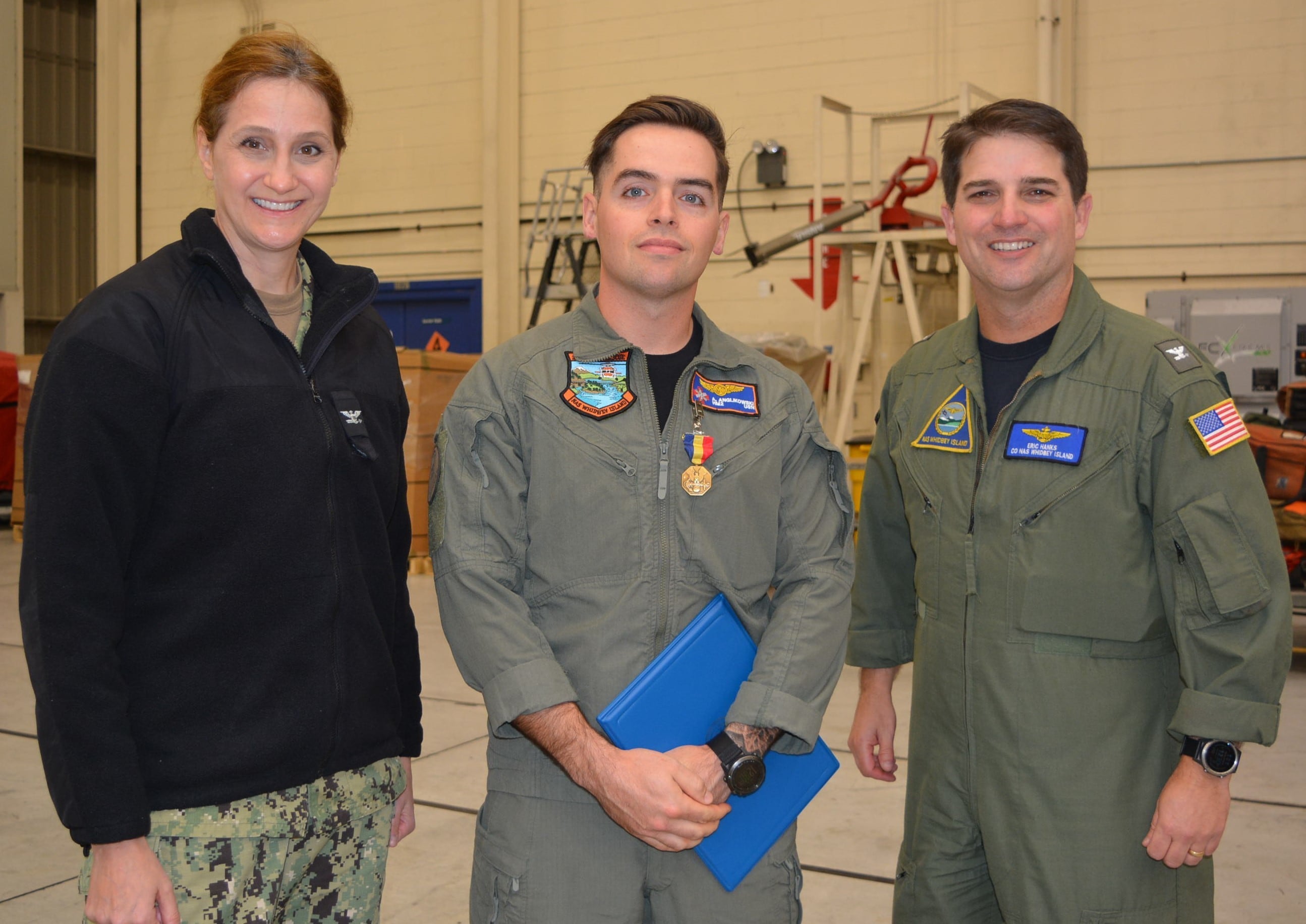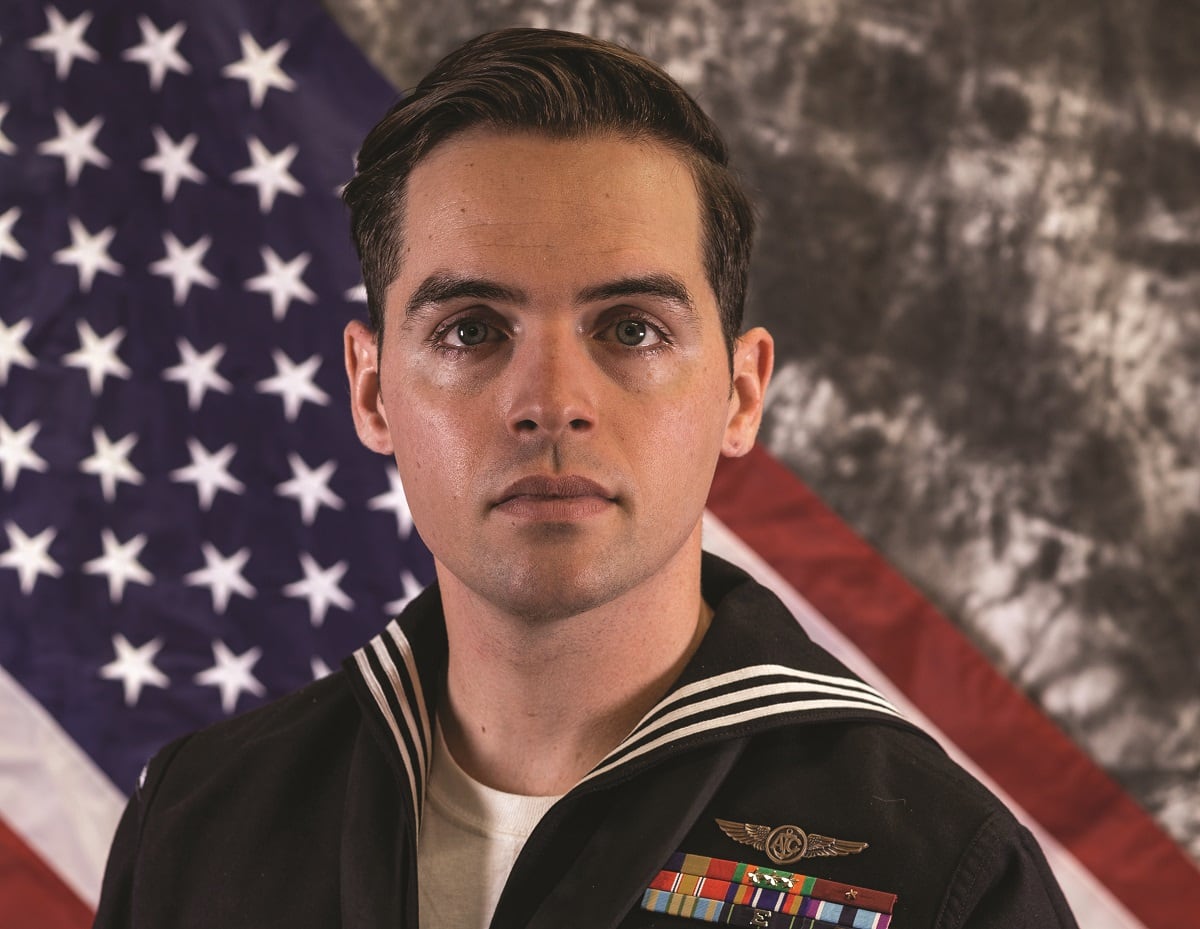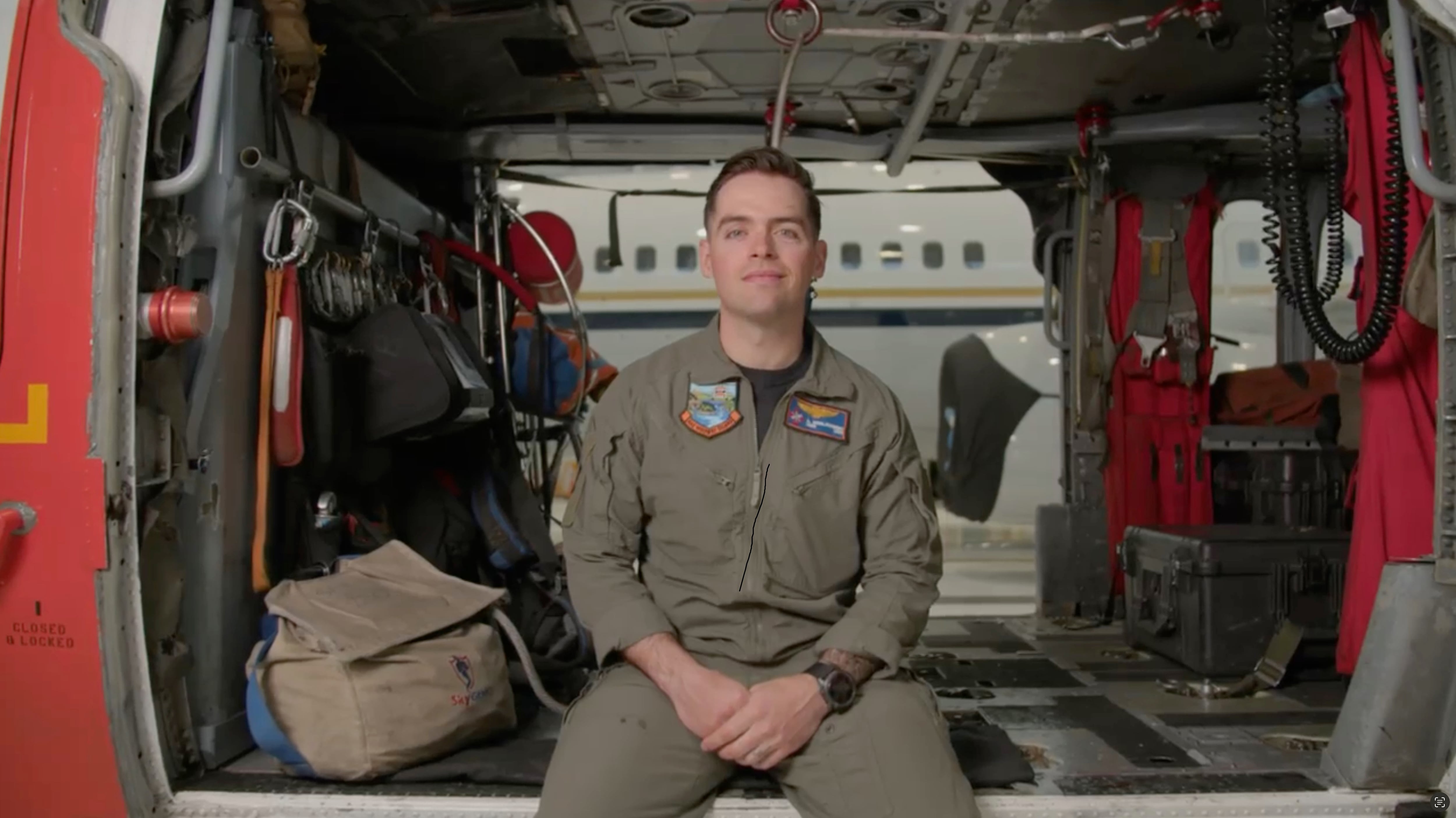The life of a sailor assigned to the elite Whidbey Island Search and Rescue, or SAR, unit at Naval Air Station Whidbey Island, Washington, is one defined by unpredictability.
After joining the Navy in 2016, Hospital Corpsman 2nd Class Anthony Anglikowski soon realized he wanted to be a part of that life.
This elite crew of two MH-60S Seahawk helicopters, 10 pilots, three search and rescue medical technicians and 10 rescue aircrewman respond to rescue needs throughout the wilds of western Washington state and beyond.
And when the call goes out, their 15- or 30-minute alert posture means they can be airborne and on the way fast.
But SAR life is not like a movie. It’s a dangerous job that requires regular improvisation to rescue stranded or injured hikers across the vast Pacific Northwest wilderness, or to respond to plane crashes or sea mishaps.
And sometimes, despite the most valiant efforts, not everyone makes it home.
But the individuals they save, and their family members, know those efforts matter.
Anglikowski, 28, a SAR medical technician and helicopter inland rescue aircrewman, learned this lesson firsthand when a call for help came in on May 23, 2021.
It would be the most intricate and technically challenging rescue mission Anglikowski had ever encountered, and one for which he would later receive the Navy and Marine Corps Medal, the service’s highest award for noncombat heroism.
”HM2 Anglikowski epitomizes the very best in terms of his technical skills as well as his servant leadership approach to all he does,” Capt. Juliann Althoff, the commanding officer of his unit, Navy Medicine Readiness and Training Command Oak Harbor, said in a statement. “His valued contributions to our team are a testament to his profound work ethic and dedication to community service.”

That day, Anglikowski and his comrades got a call about two hikers who had gotten into trouble while descending a challenging mountain formation known as “The Brothers” on the Olympic peninsula.
Anglikowski and his crew never know what to expect when such calls go out, but they are soon airborne.
“When we got there, the weather was the biggest thing holding us back,” he recalled recently. “There’s a significant cloud layer and quite a bit of terrain to navigate.”
The SAR team ended up orbiting for about 30 minutes until they could find a cloud hole for their descent.
Eyes peeled in the helicopter, Anglikowski and his comrades began inching up the valley.
They eventually found some good Samaritan hikers surrounding an injured man they had placed on a rock slab along an icy slope that Anglikowski remembered sitting at a steep 50 degrees.
Anglikowski and his partner descended to the icepack and made their way to the injured man.
“(The man) told us that himself and his girlfriend had summited the mountain early in the morning,” Anglikowski said.
They were on their way down when either one or both of them tripped.
“The terrain was a V-shape and ended up pulling them together where they kind of bounced off each other,” Anglikowski said. “He saw his partner then slip down into this hole.”
The hiker and the passersby had shined lights into the hole and shouted the woman’s name, but received no response.
Anglikowski said the icy hole was about two-feet by two-feet and descended about 40 feet down.
In there, a furious waterfall had formed as the mountain’s snowpack thawed in the spring weather, and he remembered the interior measuring about 60-feet wide.
The SAR team had gotten there about an hour after the woman’s fall. The male hiker was medically stable but hysterical, Anglikowski recalled.
Pacific Northwest search and rescue missions like the one Anglikowski embarked on that day are by nature a cooperative affair. Often, civilian authorities will call the Whidbey SAR crew when they are outgunned.
In this case, Anglikowski realized it was going to take a lot more than what he and his fellow sailor had on them to get the woman out of that crevasse.
They called in some colleagues from the local Jefferson County Search and Rescue team, and once on site, the rescuers jury-rigged a rope hoist system to bring the woman out of the depths.
The man was soon evacuated via the SAR helo, and Anglikowski and his team went to work.
As they built the rope hoist system, Anglikowski recalled how there weren’t many anchor points in the forbidding terrain.
Still, they built a two-rope system and lowered one of the county rescuers into the hole.
There, that rescuer found the woman deceased and in the water.
The combined crew tried to hoist her out of the hole.
“On the way up, she ended up getting lodged under a rock ledge,” Anglikowski recalled. “So, I hooked into the rope and got lowered down into the waterfall.”
Down in those confines, Anglikowski used his own body to get behind the woman and get her unstuck from the rock ledge.
She was pulled up and the sailor soon followed.
They then waited on the steep terrain for the helicopter to get a cloud opening and retrieve them all.

“At significant personal risk, Anglikowski and one of the Jefferson County members rappelled into the crevasse,” the Navy said when announcing the the medal for his bravery and ingenuity.
Not every rescue has a happy ending, and Anglikowski indicated he is at peace with not being able to save everyone.
“It wasn’t the ideal ending that everybody wanted, but we received some thank yous from the victim’s family for at least recovering her from the mountain and not leaving her out there,” he said.
Unfortunately, death is sometimes part of the job, he said.
“It is an expectation, and we do stay busy here,” Anglikowski said. “People know it’s a possibility. Some people end up dealing with more than others. But it’s just something that you lean on your team for and cope with in your own, hopefully healthy, way.”
Before enlisting, Anglikowski was a paramedic and firefighter back home in Erie, Pennsylvania.
But Whidbey SAR has been a whole other beast, he said.
“Training that the Navy provides gets you to the bare minimum to operate here,” Anglikowski said. “But the experience is really what makes you a good provider and a good rescuer.”
Even on the hard days, Anglikowski said he loves the job and the variety it entails.
“Most every day is something different,” he said. “We get to see incredible parts of Washington that people don’t often set foot in, let alone lay eyes on.”
Being able to assist civilian counterparts and help the outdoor community has also been gratifying, he added.
“It’s very rewarding to be able to provide that service and that capability to the community, especially the backcountry outdoor adventure community,” Anglikowski said. “Most of us are an avid part of that, so it’s nice to be able to give back to the people that we share those spaces with.”
See all Military Times’ 2023 Service Members of the Year honorees.
Geoff is the managing editor of Military Times, but he still loves writing stories. He covered Iraq and Afghanistan extensively and was a reporter at the Chicago Tribune. He welcomes any and all kinds of tips at geoffz@militarytimes.com.





